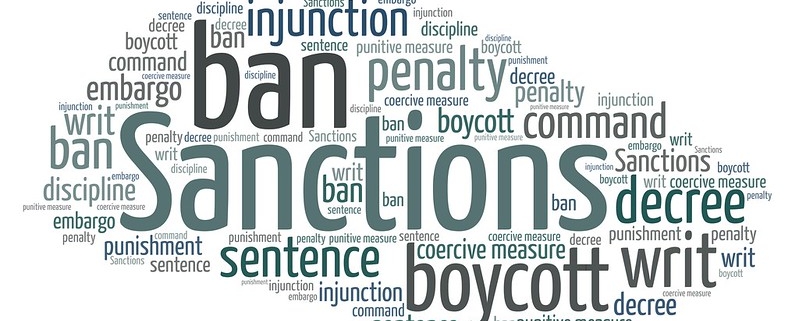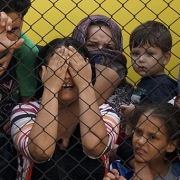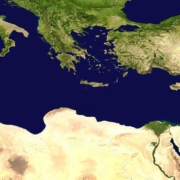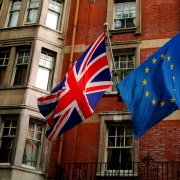The role of Economic Sanctions in the International Relations
Imposing economic sanctions has become one of the most used methodologies of coercion in world politics. The average reader reads frequently on the news that global leaders or organisations prefer this tactic as a preventive measure or penalty for wrongdoing towards another state or non-state actor.
The goal behind the economic sanctions is to correct or stop the unwanted behaviour of a state or non-actor that goes against international law and order. The imposition of economic sanctions towards North Korea, Russia, China, Iran are some typical examples.
While the use of economic sanctions remains a popular tactic, many critics have expressed their reservations towards the effectiveness of reaching a specific goal.
One question that may arise here is what exactly are the economic sanctions and how effective can they be as a preventive/corrective measure in world politics? The following section aims to answer the above questions before further exploring the current status of the sanctions under the UN or EU framework.
The role of economic sanctions in the International Relations
Before seeking to assess the usefulness of the sanctions as a political tactic, let’s first establish the definition of the sanctions in the international relations literature. To begin with, sanctions constitute one of the three instruments of coercion: political measures, economic measures (sanctions) and military use (De Wijk,2014).
Sanctions are used as a diplomatic tactic to express political disapproval in a peaceful manner without the need to declare war. In this sense, economic sanctions are less risky than military interventions (De Wijk,2014). These measures can take the form of customary trade withdrawals and/or financial prohibitions such as embargos or blockades.
The objective of the sanctions is to exert pressure towards a government, leader, regime or non-state actor to make concessions. Or even further, to coerce, deter or punish nonstate actors that pose as a threat to the regional or global security by violating fundamental human rights. This is mainly the policy line that the United Nations, the EU and other global institutions have been following after the 9/11 terrorist attack by adding non-state actors on the target list. A summary of the UN approach on economic sanctions can be found below:
“The Security Council can take action to maintain or restore international peace and security under Chapter VII of the United Nations Charter. Sanctions measures, under Article 41, encompass a broad range of enforcement options that do not involve the use of armed force” and “have taken a number of different forms, in pursuit of a variety of goals” ranging from “comprehensive economic and trade sanctions to more targeted measures such as arms embargoes, travel bans, and financial or commodity restrictions” (United Nations Security Council, 2020).
What is important to highlight here is that for the UN, sanctions are not viewed as a standalone technique for the restoration of international peace and security. On the contrary, they are embedded in a wider strategy conferring peacekeeping, peacebuilding and peacemaking.
Therefore, political leaders and international institutions can use the economic sanctions to “alter the strategic decision of state and non-state actors that threaten their interests or violate international norms of behaviour” (Masters, 2019). Undoubtedly, it is a low-cost as well as a low-risk method to coerce by substituting the call for war.
To what extend this method of deterrence is effective can be debatable. This is related to the framework that sanctions are expected to unravel. For many peers, the sole use of sanctions is quite problematic and ineffective – especially in the long-term – if not combined with other coercive instruments such as the induction of rewards and the deployment or threat of military force. The next section focuses on the current framework that sanctions are imposed by the UN, the EU and individual states.
Imposing sanctions: the UN, the EU and individual states
Despite the popularity of the sanctions in modern diplomacy, the truth is that it does not constitute a new tactic. Its roots trace us back to the classical period of Ancient Greece, around the 5th century BC, when Pericles banned the Megarians from the market due to a kidnapping incident.
In modern times, the UN has imposed 30 sanctions since its foundation. Today, there are 14 ongoing sanctions1 focusing on “supporting the political settlement of conflicts, nuclear non-proliferation, and counter-terrorism” (United Nations Security Council, 2020).
In the European Union, sanctions are viewed as a form of restrictive measures, that aim to prevent conflict or respond to emerging or actual crises. At the moment, there are over 40 sanctions imposed from the EU to third countries and non-states. Such measures include arms embargoes; trade restrictions such as imports and export bans; financial restrictions; restrictive movement such as visa or travel bans (European Commission). A great tool to track current sanctions imposed by the EU can be found on the SanctionsMap website of the EU.
Of course, sanctions can be processed solely by states. The reasons are usually aligned with the foreign policy and national security agenda of a country. Among the countries that use mostly the economic sanctions, the United States ranks to the top. The US body that is responsible for administering and implementing sanctions is the Office of Foreign Assets Control (OFAC) under the umbrella of the US Department of the Treasury (U.S. Department of the Treasury). However, Congress is responsible for the duration limits of each sanction. A full list of the 30+ Sanctions Programmes and Country Information can be found on the U.S. Department of the Treasury website.
Food for thought
Based on the above analysis, it is obvious that economic sanctions can be such an effective yet inexpensive coercive tactic. States or international institutions can select economic restrictions as a measure to prevent or correct the behaviour of a state or a non-state group with an ultimate goal to reach a specific target.
For an in-depth analysis of why governments or institutions select sanctions, two separate articles will follow as case studies on sanctions issued by states (the US sanctions to China); by global institutions (the EU sanctions in its neighbourhood).
Although sanctions serve the same purpose – to coerce the opponent- motives may differ between states or global institutions. While government sanctions may be driven by national security or other political purposes (economic or technology advancement), sanctions administered by global institutions, who act as a joint decisionmaking entity on behalf of their member states, might be lifted to protect common security interests or shared values such as human rights or democratic values.
No matter what’s aimed to achieve, there is one common inference coming from the international relations literature: that economic sanctions can only be effective if combined with the implementation of other coercive tactics, ultimately with the threat or limited use of military forces.
Photo: EpicTop10.com. Sanctions. (2019). Source: (flickr.com) | (CC BY 2.0)
Footnotes
[1] 14 ongoing sanctions:
Somalia, ISIL (Da’esh), Al-Qaida, Iraq, Democratic Republic of Congo (DRC), Sudan, Democratic People’s Republic of Korea (DPRK), Libya, Central African Republic (CAR), Yemen, South Sudan, Mali, Guinea-Bissau
Bibliography
De Wijk R (2014) The Art of Military Coercion, Chapter “The Instruments of Coercion”, Amsterdam University Press (2014), pp.109-119 and 122-138 (Accessed 19/08/2020)
European Commission, Sanctions, Available at: https://ec.europa.eu/info/business-economy-euro/banking-and-finance/international-relations/sanctions_en (Accessed 20/08/2020)
Masters J. (2019) What Are Economic Sanctions? Council on Foreign Relations, Available at: https://www.cfr.org/backgrounder/what-are-economic-sanctions (Accessed 19/08/2020)
United Nations (2020) Sanctions, United Nations Security Council, Available at: https://www.un.org/securitycouncil/sanctions/information (Accessed 19/08/2020)
U.S. Department of the Treasury, Financial Sanctions, Available at: https://www.treasury.gov/resource-center/sanctions/Pages/default.aspx (Accessed 20/08/2020)






 176th Wing Alaska Air National Guard's photostream
176th Wing Alaska Air National Guard's photostream 

 176th Wing Alaska Air National Guard's photostream
176th Wing Alaska Air National Guard's photostream 
Leave a Reply
Want to join the discussion?Feel free to contribute!